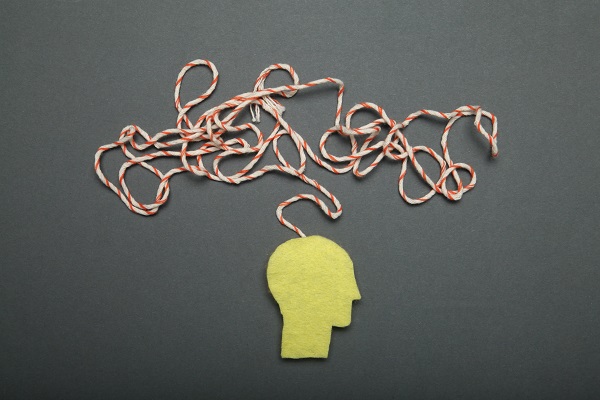Adult ADHD and Treatment FAQs

ADHD is more common among children and teenagers, but it affects millions of adults as well who have not yet tried adult ADHD treatment. In fact, approximately 10 million adults have ADHD, which can make functioning at a high level far more challenging if left untreated.
The good news is that there are effective treatment options for adult ADHD, including psychotherapy (talk therapy), medication, and lifestyle and dietary changes. The following review discusses several frequently asked questions that mental health professionals receive from patients in regard to adult ADHD and treatment options.
Answers to frequently asked questions about adult ADHD and treatment
The first step to getting your ADHD under control is to understand what exactly you are dealing with and the symptoms. This guide provides answers to some of the more common questions that mental health professionals receive about adult ADHD and the treatment options that are available.
What exactly is adult ADHD?
Attention-deficit/hyperactivity disorder (ADHD) is a brain disorder that causes difficulties functioning daily. Adult ADHD specifically is ADHD that either develops or is not treated until the person is 18 or older. This is an important distinction, as the majority of ADHD cases are diagnosed during the adolescent age range.
What are the symptoms of adult ADHD?
The symptoms of adult ADHD look different for every person. However, some of the more commonly reported symptoms include difficulty staying focused on a task, poor time management, issues with prioritization and planning, impulsivity, mood swings, and low frustration tolerance.
How is ADHD diagnosed in adults?
There are no specific tests that a mental health professional uses to diagnose adults with ADHD. Instead, they typically rely upon multiple tests to determine if the patient can benefit from ADHD treatment. This may primarily include asking the patient questions about their ability to focus, problems they are having with mood, etc., and a physical examination (primarily to rule out other possible causes).
Is ADHD associated with any other conditions?
There are common comorbidities with adult ADHD, although many people only experience ADHD by itself. Common conditions that are associated with adult ADHD are depression, anxiety disorders, and bipolar disorder.
What are the treatment options for adult ADHD?
Every adult ADHD treatment plan is personalized according to what works best for the individual. There are medications that are known to help with the symptoms of adult ADHD, including various types of stimulants and antidepressants. However, medication is not always effective. Other treatment options include psychological counseling (i.e. cognitive-behavioral counseling), lifestyle changes, and social support.
Should I tell my employer I have ADHD?
A common question among adults with ADHD is whether or not they should inform their employer, since the workplace is typically the most notable place in which ADHD affects them. The answer varies for everyone. In some cases, particularly if the ADHD is controllable, it is best to not tell your boss, whereas in other instances it can be beneficial to do so, as they can make arrangements to assist you.
When are stimulants recommended for ADHD?
Stimulants are the most commonly prescribed medication for ADHD. They are particularly recommended when treating symptoms such as impulsive behavior, short attention span, and hyperactivity. Adults and children alike who are diagnosed with ADHD can benefit from stimulant medications. As mentioned, stimulants (or antidepressant medications) are sometimes combined with other treatment methods, lifestyle changes, and dietary changes.
What are the benefits of psychological counseling to help treat adult ADHD?
Psychological counseling, and specifically psychotherapy (talk therapy), is often used along with medication to allow for the most effective ADHD treatment plan possible. Psychotherapy helps many adults with ADHD improve their time management and organizational skills, develop problem-solving skills, learn to reduce their impulsive behavior, improve their self-esteem, and cope with failures or traumatic events in their life.
How effective is ADHD treatment in adults?
Adult ADHD treatment is effective in approximately 70 percent of patients. In instances where ADHD medication does not work initially, the patient and the mental health professional can work together to find a more effective treatment plan. It is important to communicate with your mental health professional throughout treatment, especially if your current medications are not effective or are causing complications.
Find out more about adult ADHD diagnosis and treatment
The good news is there is a solution to adult ADHD, and there are multiple treatment options that may work for you. If you have symptoms of ADHD and want to speak with a mental health professional to determine if an ADHD treatment plan is right for you, contact our office today by phone or message.
Get more information here: https://futurepsychsolutions.com or call Future Psych Solutions at (803) 335-5232
Check out what others are saying about our services on Yelp: Adult ADHD Treatment in Columbia, SC.
Related Posts
Post-traumatic stress disorder PTSD treatment continues to evolve, especially for individuals who do not find enough relief with traditional talk therapy or standard medications alone. PTSD affects the brain's stress circuits, mood regulation, and sleep, which can make daily life feel overwhelming. Modern interventional psychiatry focuses on advanced therapies that help the brain reset and…
Depression can be difficult to manage, particularly for those who do not respond to traditional antidepressants and other methods. In these cases, spravato for depression offers a new and effective psychiatric treatment option. This FDA-approved medication, also known as esketamine, is administered as a nasal spray under medical supervision. It has shown remarkable results for…
Treatment-resistant depression can leave patients feeling stuck, even after exploring different medications and approaches to therapy. The good news is that TMS therapy, or transcranial magnetic stimulation, offers a new way forward. This innovative and noninvasive psychiatric treatment aims to restore healthy communication between brain regions responsible for mood, emotion, and focus, providing a path…
Ketamine therapy is an effective treatment method for treatment-resistant mental conditions, such as depression, anxiety disorders, and post-traumatic stress disorder (PTSD). However, common misconceptions may prevent individuals from choosing this treatment and obtaining the relief they need. Our team is here to dispel the three most common myths surrounding ketamine therapy so you can make an…


